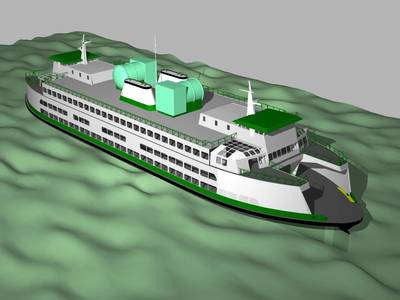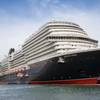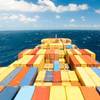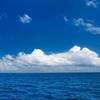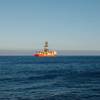Washington State Ferries Explores LNG
Washington State Ferries (WSF) is exploring an option to use liquefied natural gas (LNG) as a source of fuel for the Issaquah Class ferries. LNG is used worldwide and provides an opportunity to reduce fuel costs, and better the environment by decreasing emissions.
Saving money, cleaner environment, energy independence
Fuel is WSF's fastest growing operating expense; it burns more than 17 million gallons each year. Its fuel budget is over 30 percent of the FY11-13 operating budget, compared to 12 percent in FY00-01. The fuel cost savings moving from diesel to LNG is approximately 40-50 percent at today’s pricing.
Fueling vessels with LNG also significantly reduces emissions.
- Approximately 100 percent reduction in particulate matter and sulfur oxides
- At least 90 percent reduction in nitrous oxides
- Approximately 20 percent reduction in carbon dioxide
Using natural gas as a transportation fuel presents an opportunity to improve U.S. energy security. Natural gas is largely produced domestically – only 10 percent is imported – in stark contrast to petroleum.
Worldwide examples
Use of natural gas in transportation has been steadily increasing for the last decade. LNG is fast becoming a transportation fuel for transit buses, semi-trucks and ferries.
- Since 2000, the Norwegian government has allowed the construction and operation of LNG passenger vessels. There are currently 20 car and passenger ferries operating in Norway that are fueled by LNG.
- Both BC Ferries and Staten Island Ferries are studying options to retrofit their vessels from diesel to LNG fuel.
- Quebec Ferries Company has contracted for three new LNG ferries.
- There are LNG passenger vessels currently under construction or in design for service in Argentina, Uruguay, Finland, and Sweden.
U.S. examples of LNG used in public transportation
- City of Phoenix Public Transit Department
- Santa Monica, California "Big Blue Bus" system
Other LNG resources
- University of Houston Law Center, Institue for Energy: LNG Frequently Asked Questions
- American Clean Skies Foundation: Natural Gas for Marine Vessels
- Massachusetts Institute of Technology: Potential Market for LNG-Fueled Marine Vessels in the United States
- Freeport LNG: Safety Information
- Marine Log Magazine: "Who has gas and who wants it?"
- Pacific Maritime Magazine: Propulsion: Is LNG the future?
- Michigan Engineer, Fracktopia
WSF plans
WSF has received conceptual approval from the U.S. Coast Guard to retrofit the propulsion system with new engines on the six Issaquah Class ferries to use LNG as a source of fuel. The current cost estimate to retrofit the Issaquah Class ferries is $85.6 million in year of expenditure. These vessels would be fueled by trucking in LNG from sources in British Columbia or the Pacific Northwest.
Next steps
Safety and security assessments – WSF selected Det Norske Veritas to complete a safety and security plan, risk assessment, and operational manual for converting to LNG. DNV is a classification body that has been involved in developing international standards for the use of LNG in passenger vessels. On May 22, WSF briefed the U.S. Coast Guard Sector Seattle on the draft assessment. A final assessment will be sent to U.S. Coast Guard headquarters for review later this year.
Design/build LNG propulsion system – WSF has developed and issued a request for proposals for the retrofit of its six Issaquah class ferries. The RFP requires the contractor to purchase and install all the required equipment and get all the required approvals to allow the vessel to obtain a certificate of inspection from the U.S. Coast Guard for operation with LNG as a fuel. Proposals are presently being evaluated.



